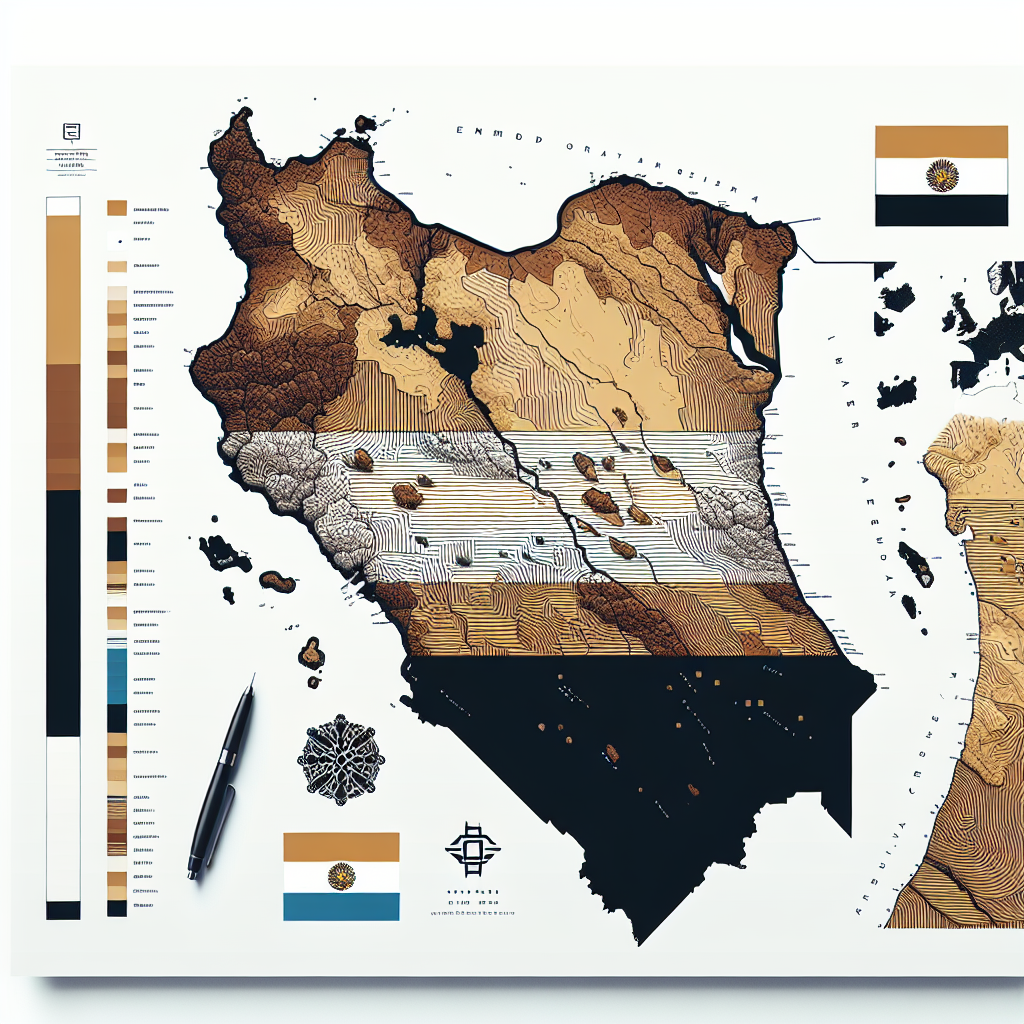FBAR Compliance: Navigating Americans Reporting of Chilean Assets
Overview
As globalization tightens its grip, many Americans find themselves navigating the complex waters of managing financial assets across international borders. For those with connections to Chile, understanding and complying with the Foreign Bank and Financial Accounts Report (FBAR) requirements becomes a critical piece of their financial puzzle. My aim, through years of specializing in FBAR compliance, is to guide you, layer by layer, on how to accurately report your Chilean assets, ensuring peace of mind and regulatory compliance.

What is FBAR?
The FBAR is a tool used by the U.S. government to keep track of its citizens' financial engagements outside its borders. Officially known as FinCEN Form 114, it's filed electronically with the Financial Crimes Enforcement Network. It applies to U.S. persons if they have a financial interest in or signature authority over foreign financial accounts that exceed $10,000 at any time during the calendar year.
Who Must File FBAR?
- U.S. Citizens: Including expatriates living in or with financial ties to Chile.
- Green Card Holders: Legal residents residing within or outside U.S. borders.
- Foreign Nationals: Those who pass the Substantial Presence Test in the U.S.
Filing FBAR for Chilean Assets by Americans
When it comes to reporting Chilean assets, the process mirrors that of other foreign assets, yet it demands a thorough understanding of your entire financial landscape, both domestic and international. Let's tailor our approach to those American expats with financial interests in Chile, unraveling the specifics that you need to know.

10 Key Points for Americans Filing FBAR for Chilean Assets
- The FBAR is separate from your tax return, requiring direct electronic filing with FinCEN.
- Consider the total aggregate value of your Chilean and other foreign financial accounts. If at any point it exceeds $10,000, you’re obliged to file.
- Account types include savings, checking, retirement accounts, mutual funds, and others where you have a financial interest or signature authority.
- Information needed for filing: account numbers, names and addresses of the foreign banks, and the maximum values of each account during the year.
- Understanding the currency conversion rates is crucial for accurate reporting.
- Joint accounts with a non-U.S. spouse or other individuals also count towards the FBAR requirements.
- Comprehensive knowledge of both U.S. and Chilean tax laws is beneficial to leverage possible tax treaties and avoid double taxation.
- Non-compliance can lead to severe penalties, emphasizing the importance of accurate and timely filings.
- For accounts held at Chilean financial institutions, awareness of FATCA requirements is also necessary.
- Amending past FBARs is possible and recommended if previous filings were incomplete or incorrect.
Chile-Specific Reporting Requirements
- Accounts in major Chilean banks and financial institutions must be reported.
- Investments in Chilean companies, bonds, or mutual funds fall under FBAR reporting.
- Real estate investments held through a financial account or direct equity interest in Chile require disclosure.
- Details of any pension plans or retirement accounts hosted by Chilean entities are necessary.
- Insurance policies with cash surrender values are reportable.
- Chilean trusts or any foreign trusts where you have a financial interest should be included.
- Any indirect interests through U.S. or Chilean entities that invest in foreign financial accounts necessitate reporting.
- Signature authority over business accounts tied to Chilean entities must be disclosed, regardless of personal financial interest.
- Foreign income generated from Chilean assets, like rent or investment dividends, needs proper reporting on both FBAR and your tax returns.
- Ownership of, or transactions involving, cryptocurrency in Chilean exchanges may also require disclosure.
Additional Financial Assets and Income
- Rental income from properties in Chile should be declared.
- Capital gains from selling Chilean real estate or other investments.
- Dividends or interest generated from Chilean accounts or investments.
- Earnings from consulting or freelance work conducted in Chile for U.S. tax residents.
- Income from any business operations within Chile.
Compliance and Tax Considerations
- Timely filing of FBAR prevents penalties and ensures compliance.
- Understanding the nuances of the U.S.-Chile tax treaty can optimize tax liabilities.
- Regular consultations with a tax advisor knowledgeable in U.S. and Chilean tax law are advisable.
- Exploring the Foreign Earned Income Exclusion (FEIE) could benefit qualifying expats.
- Foreign Tax Credit (FTC) may offset U.S. tax liabilities on Chilean-sourced income.
- The FATCA reporting for Chilean financial institutions may overlap with FBAR but requires separate compliance.
- Reviewing and updating your financial portfolio for compliance annually is critical.
- Consider voluntary disclosure if past foreign assets were not reported.
- Navigating currency conversion and international taxation can be complex but is crucial for accurate reporting.
- Engage with local Chilean financial professionals for insights into regulatory changes within Chile.
- Documentation and records of all foreign financial accounts should be meticulously maintained for at least five years.
- Strategic financial planning and consulting can help mitigate potential legal and financial repercussions of cross-border activities.
Frequently Asked Questions (FAQs)
1. What if I have multiple small accounts in Chile that collectively exceed $10,000?
You must file an FBAR if the aggregate value crosses the $10,000 threshold at any point during the calendar year.
2. Can I file an FBAR jointly with my spouse?
Joint FBAR filing is possible if you and your spouse have joint foreign accounts. However, specific conditions must be met.
3. Are penalties for non-compliance severe?
Yes, they can be significant, including substantial fines and potential criminal charges for willful neglect.
4. How are FBAR penalties determined?
Penalties vary based on whether the failure to file was non-willful or willful, with willful penalties being substantially higher.
5. Do I need to report my foreign real estate?
Foreign real estate itself is not reported on FBAR unless held through a foreign financial account.
6. Is there a deadline for filing FBAR?
The annual deadline for filing is April 15, with an automatic extension to October 15.
7. How can I correct a mistake on a previously filed FBAR?
Amendments can be made by filing a corrected report online and providing explanations for the changes.
8. Are there exemptions for reporting small accounts?
No, all foreign financial accounts must be reported if the aggregate value exceeds $10,000 at any time.
9. Does converting Chilean pesos to USD for reporting require a specific rate?
Yes, the U.S. Treasury's year-end exchange rate should be used for conversion.
10. Can I file my FBAR electronically?
Yes, FBARs must be filed electronically through the BSA E-Filing System.
File Your FBAR Now
Adhering to FBAR regulations is not just a matter of legal compliance; it's a step toward securing your financial integrity across borders. With Chile's dynamic economic landscape, American expats have a unique opportunity to explore and invest. However, these opportunities come with the responsibility of understanding and fulfilling U.S. reporting requirements. I encourage you, as part of your journey through the world of international finance, to tread carefully but confidently, equipped with the knowledge to navigate these complexities effectively. Remember, in the realm of FBAR compliance, precision, proactive planning, and timely action are your best allies.
